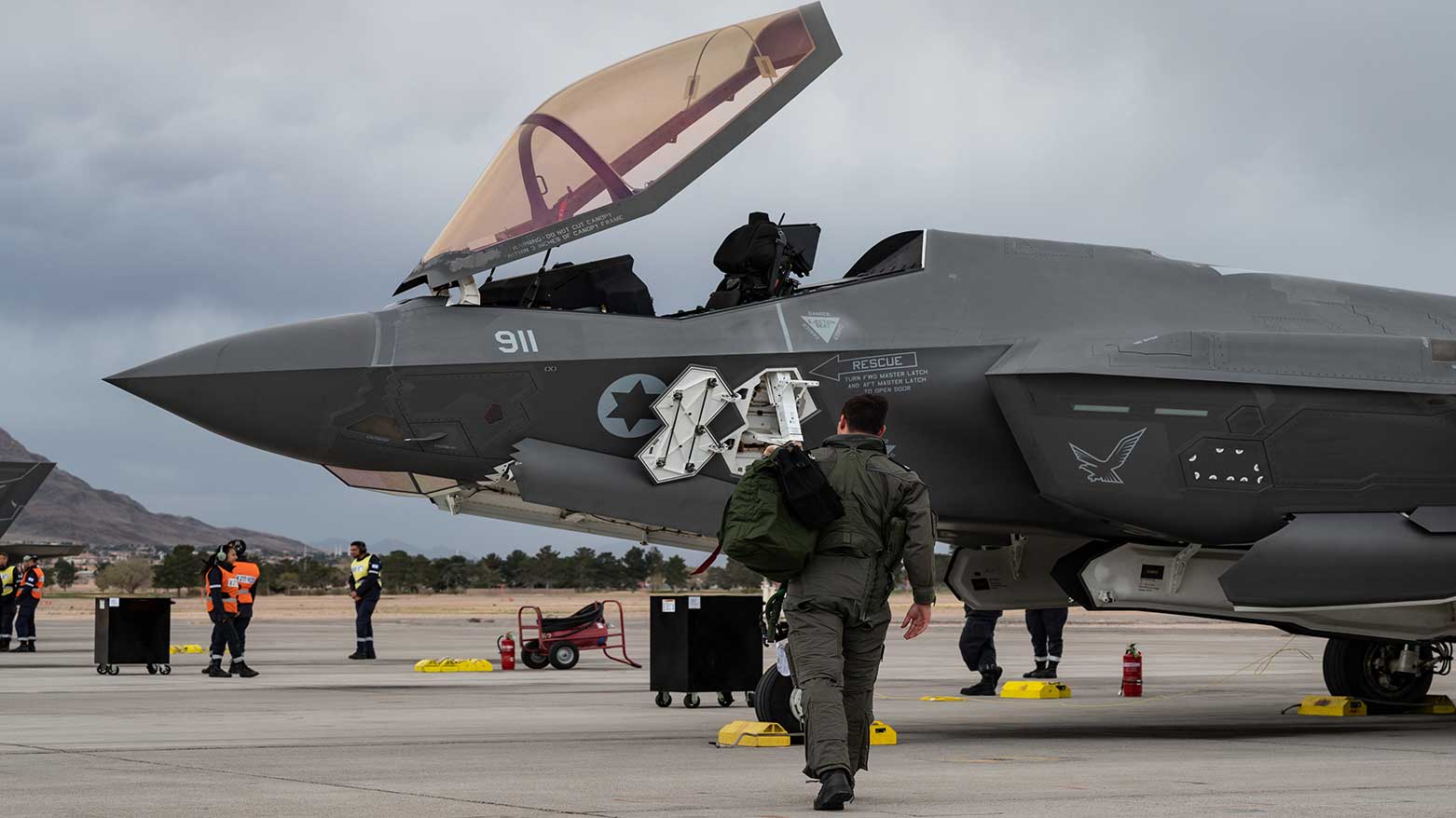Israeli Warplanes Strike Deep Into Tehran as Iran’s Missile Retaliation Slows
The Israeli military said its latest bombardment struck a facility used to manufacture uranium centrifuges and another that produced missile components.

ERBIL (Kurdistan24) — Israeli fighter jets launched fresh airstrikes on Tehran overnight and into Wednesday, targeting critical nuclear and military infrastructure, as Iran’s retaliatory missile and drone attacks diminished significantly, according to the Associated Press (AP).
The Israeli military said its latest bombardment struck a facility used to manufacture uranium centrifuges and another that produced missile components. It also reported intercepting 10 Iranian missiles overnight. The strikes are part of Israel’s sustained campaign—now in its sixth day—against Iran’s nuclear program and Revolutionary Guard positions, which began with a surprise offensive on Friday.
Amid the intensifying bombardment, a major explosion was heard at around 5 a.m. local time in Tehran, particularly affecting the eastern neighborhood of Hakimiyeh, where the Islamic Revolutionary Guard Corps (IRGC) maintains a military academy. Iranian authorities did not immediately acknowledge the attack, a pattern that has become routine as Israeli strikes escalate.
Mounting Civilian Toll in Iran
According to the Washington-based Human Rights Activists group, at least 585 people have been killed in the Israeli air campaign, including 239 civilians and 126 security personnel, while more than 1,300 others have been injured. The group, known for its reporting during the 2022 Mahsa Amini protests, cross-referenced local accounts with its internal network to verify the figures.
Iran has not issued updated casualty figures since Monday, when authorities reported 224 deaths and 1,277 injuries, raising concerns that the true toll may be significantly higher.
The sustained aerial assault has paralyzed daily life in Iran’s capital. Many shops—including those in Tehran’s iconic Grand Bazaar—remain shuttered. Long queues have formed at gas stations, and roads leading out of the city are clogged with residents seeking safety outside the capital.
Diminishing Retaliation from Iran
While Iran has launched some 400 missiles and hundreds of drones since Friday, killing at least 24 people in Israel and injuring many more, its recent strikes have grown weaker in scale. Only a handful of missiles were launched on Wednesday. Iranian officials have not explained the decline, but military experts say Israeli precision strikes on Iranian missile launchers and command facilities could be a contributing factor.
Despite the apparent weakening of Iran’s retaliatory efforts, the country’s military leadership has promised that a larger counteroffensive is on the horizon.
“The operations carried out so far have been solely for the purpose of warning and deterrence,” said General Abdul Rahim Mousavi, Iran’s army chief, in a video message. “The punishment operation will be carried out soon.”
No Signs of De-escalation
Both Iran and Israel show no indication of backing down. Israel maintains its strikes are a preemptive move to stop Iran from acquiring a nuclear weapon—a goal Tehran denies. Iran, while insisting its program is peaceful, enriches uranium up to 60%, just shy of weapons-grade levels.
“We will show the Zionists no mercy,” Iran’s Supreme Leader Ayatollah Ali Khamenei declared on his official X account.
In a stark response, Israeli Defense Minister Yoav Gallant posted, “A storm is passing over Tehran. This is how dictatorships collapse.”
Trump’s Demands and U.S. Posture
U.S. President Donald Trump has increasingly aligned himself with Israel’s war aims. On Tuesday, he issued a bold statement demanding Iran’s “UNCONDITIONAL SURRENDER” via social media and warned Khamenei that the U.S. knows his whereabouts. “He is an easy target,” Trump wrote, “but is safe there — We are not going to take him out (kill!), at least not for now.”
Trump reportedly spoke with Israeli Prime Minister Benjamin Netanyahu by phone on Tuesday to discuss the evolving situation. While initially distancing himself from the Israeli campaign, the president has hinted at greater U.S. involvement, stating that he wants something “much bigger” than a ceasefire. The U.S. has also deployed additional fighter aircraft to the region.
Repatriation Flights Begin Amid Airspace Restrictions
Amid widespread flight cancellations, Israel on Wednesday welcomed its first repatriation flights since the conflict began. Two flights from Larnaca, Cyprus, landed at Tel Aviv’s Ben Gurion International Airport, which had been shut down due to missile threats, according to airport spokesperson Lisa Dvir.
Tens of thousands of Israelis had been stranded abroad as a result of Israel’s airspace closure, and the conflict has continued to disrupt commercial air travel throughout the region.
As fighting continues and diplomacy stalls, the world watches with mounting anxiety. With both Tehran and Jerusalem dug in, and Washington growing more vocal, the specter of a broader regional war looms larger by the day.
Kurdistan24 English will continue to provide instant coverage and up-to-date news on developments in the ongoing conflict between Israel and Iran. Keep an eye on Kurdistan24 English's website and social media platforms for the latest updates.
